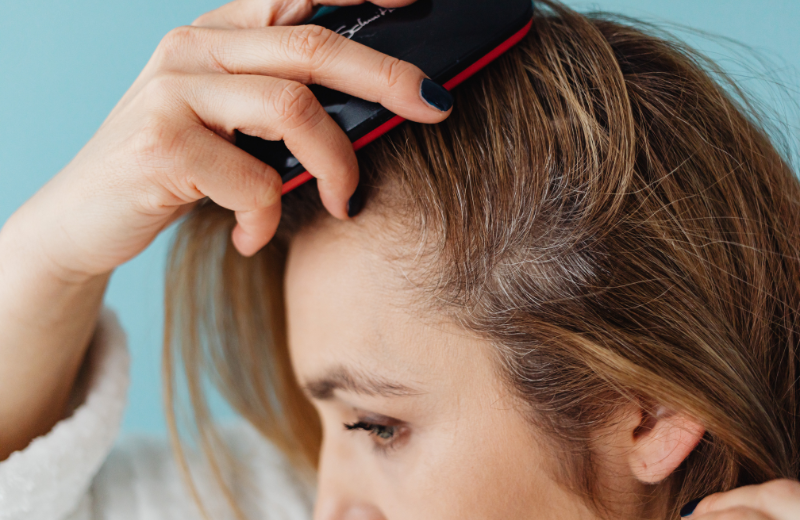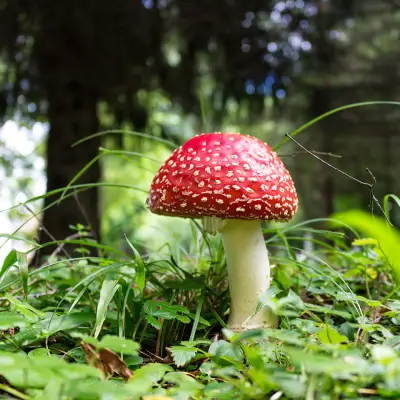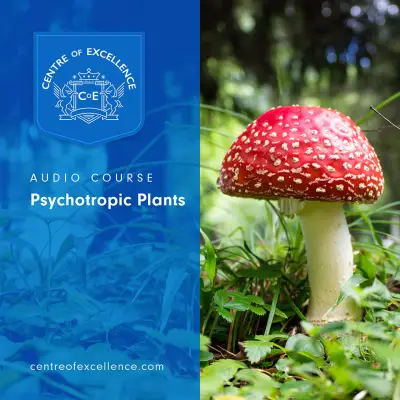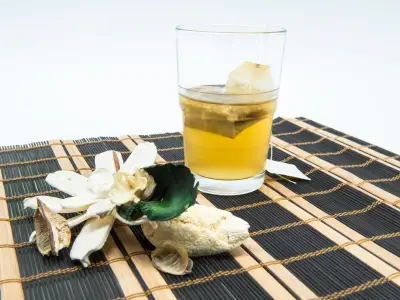If you’ve been exploring natural remedies to support your health, you’ve likely heard of black seed oil. Often praised as a “cure for everything but death,” this ancient oil is making a modern comeback.
People turn to it for clearer skin, a stronger immune system, better digestion, and even peace of mind. But what exactly is it? How does it work? And is it safe for everyone? In this guide, you’ll find the answers.
This article is for informational purposes only and is not a substitute for professional medical advice, diagnosis, or treatment. Always consult with your GP or a qualified healthcare professional before starting any new herbal remedies, especially if you are pregnant, breastfeeding, taking medication, or managing a health condition.
Jump to:
- What is Black Seed Oil?
- The Benefits of Black Seed Oil
- What Types of Black Seed Oil Can You Take?
- What is the Best Form of Black Seed Oil to Take?
- How Much Black Seed Oil Should You Take, and When?
- The Best Time to Take Black Seed Oil
- What Are the Side Effects of Black Seed Oil?
- Who Should Avoid Black Seed Oil?
- Is Black Seed Oil Safe for Long-Term Use?
- Other Common Questions About Black Seed Oil
- Study Our Master Herbalist Diploma for £29
Recommended for you!
Best SellersWhat is Black Seed Oil?
Black seed oil is made by pressing the seeds of the Nigella sativa plant, also known as black seed or black cumin. The result is a rich, amber-coloured oil packed with beneficial compounds—most notably, thymoquinone, known for its anti-inflammatory and antioxidant effects.
The definition of black seed oil is a natural oil with potential health-enhancing properties. It has been used for centuries in Middle Eastern, African, and Asian traditional medicine.
The Benefits of Black Seed Oil

You may be wondering what the benefits of taking black seed oil are. While research is still growing, many users and traditional practices highlight its wide-ranging effects.
Immune Support
Black seed oil contains antioxidants that help your body combat harmful molecules called free radicals. This may support your immune system and help you feel stronger and more resilient. Regular use is believed to strengthen the body’s natural defences, especially during seasonal changes.
Anti-Inflammatory Relief
For people with conditions like arthritis or joint pain, black seed oil is often used as a natural way to reduce inflammation and discomfort. It may also help ease swelling in muscles or joints when used regularly. This makes it a popular choice for those managing chronic pain or recovering from physical strain.
Skin Health
Many people apply black seed oil on their face to help with acne, eczema, and dry skin due to its antibacterial and moisturising properties. It’s even used to fade dark spots and even out skin tone. Its nourishing effect can leave the skin feeling smoother, softer, and visibly refreshed.
Hair Growth and Scalp Care
Black seed oil is said to nourish the scalp, strengthen roots, and encourage hair growth. It’s also used to reduce dandruff and add shine. Over time, users often notice stronger, thicker strands and improved scalp comfort.
Digestive Comfort
Black seed oil may help with indigestion, gas, and bloating. Some also use it to support overall gut health and improve nutrient absorption. It can be especially soothing for those with sensitive stomachs or irregular digestion.
Weight Management
Some early research and personal stories suggest black seed oil may help reduce appetite and support metabolism, especially when paired with healthy eating. It’s sometimes included in natural weight loss routines. By helping regulate blood sugar and reduce cravings, it may complement lifestyle changes aimed at managing weight.
Hormonal Balance
Black seed oil is sometimes used to support women’s hormonal health. Among the benefits of black seed oil for women is its potential to ease menstrual discomfort, reduce bloating, and support emotional balance during hormonal shifts. Some find it helpful in promoting a more regular and comfortable menstrual cycle.
Mental and Emotional Wellbeing
Some users report feeling calmer after regular use of black seed oil. The oil’s natural compounds may support better sleep and a more relaxed mood. It’s often turned to as a gentle aid for stress management and emotional stability.
Oral Health
Although not a substitute for brushing, black seed oil’s antibacterial properties may help support a clean, healthy mouth. Some natural toothpaste brands even include it as an ingredient. Swishing it as an oil-pulling agent may also contribute to fresher breath and gum support.
Youthful Appearance
Black seed oil might help reduce fine lines and maintain skin elasticity thanks to its antioxidant and hydrating qualities. It’s widely used in natural skincare routines to promote a radiant, youthful complexion over time.
What Types of Black Seed Oil Can You Take?
Black seed oil is available in a variety of forms, giving you the flexibility to choose one that fits your preferences and wellness goals.
You can find black seed oil in liquid form, capsules, softgels, powders, tinctures, skincare products, and even infused into foods or health blends. Some types are ideal for internal use to support immunity or digestion, while others are designed for topical use to promote skin and hair health.
What is the Best Form of Black Seed Oil to Take?

- Capsules and Softgels: Black seed oil capsules are one of the most convenient and widely used options. They offer precise, consistent dosing and are tasteless, making them perfect for those who prefer a no-mess supplement. This form is excellent for daily use and general health support.
- Liquid Oil: Cold-pressed black seed oil in liquid form can be taken by the teaspoon or added to drinks and food. It’s popular among those who like a more traditional or natural format. The oil is especially effective when used both internally and externally, allowing for versatile applications.
- Powders: Black seed oil powder is less common but can be found in some herbal blends and supplement formulas. It may be mixed into smoothies, yoghurts, or recipes for added nutritional support. Powders are preferred by those who want to avoid oils but still reap the benefits of black cumin.
- Tinctures: Black seed tinctures are alcohol-based extracts typically taken in small doses under the tongue or mixed into water. This format provides rapid absorption and is often chosen for fast-acting support in areas like digestion, immunity, or respiratory health. Learn how to make your own herbal tinctures.
- Skincare Products: You’ll also find black seed oil infused into creams, lotions, and serums. These products are designed for direct application to the skin and are commonly used to soothe dryness, reduce blemishes, and support overall skin balance and radiance.
- Infused Foods and Blends: Some brands offer health foods, smoothies, and herbal blends containing black seed oil. These provide a convenient and enjoyable way to incorporate the oil into your diet, especially if you prefer functional nutrition over supplements.
How Much Black Seed Oil Should You Take, and When?
The appropriate dosage of black seed oil depends on the format and your specific wellness goals. Below are general guidelines:
- Capsules/Softgels: Most products suggest between 500mg and 1000mg once or twice daily. Always follow the directions on the label and start with the lowest dose to assess your tolerance.
- Liquid Oil: Begin with ½ to 1 teaspoon per day, and increase to 1–2 teaspoons if well tolerated. You can take it straight or mix it into drinks, salads, or yoghurt.
- Powder: If using powdered black seed oil or seed powder, 1–2 grams daily is a common dose. Add it to smoothies or warm water for easy consumption.
- Tincture: Start with 0.5ml to 1ml up to twice daily, diluted in water or juice. This is a fast-acting method, especially helpful for immune and digestive support.
- Skincare Use: For topical use, apply a few drops of oil to clean skin once or twice a day. Always do a patch test first, especially if you have sensitive skin.
- Infused Foods: Stick to one serving per day as recommended on the packaging. Keep an eye on added ingredients such as sugars or preservatives.
The Best Time to Take Black Seed Oil
Black seed oil is usually best taken in the morning or early afternoon. Its potential to support energy, immunity, and digestion makes it a strong addition to your daytime routine. Taking it late in the evening might not suit everyone, especially if you're sensitive to digestive stimulation.
If you're taking black seed oil to support exercise, joint comfort, or inflammation, consider taking it with breakfast or 30–60 minutes before physical activity. For general wellness or immune support, a consistent morning dose is often most effective.
What Are the Side Effects of Black Seed Oil?

Common side effects of black seed oil are usually mild and more likely to occur when taken in high doses or used for prolonged periods. Most people tolerate black seed oil well, especially when they stick to the recommended dosages. However, some people may experience:
- Digestive issues, such as nausea, bloating, or an upset stomach
- Skin irritation or redness when applied topically in concentrated form
- Low blood pressure, particularly in those already on blood pressure medication
- Mild allergic reactions, including rashes, itching, or difficulty breathing, in rare cases
- Changes in blood sugar levels or increased sensitivity to insulin
Black seed oil contains active compounds like thymoquinone, which can influence inflammation, immunity, and metabolism. While these effects are generally positive, they can occasionally cause unwanted reactions, especially in people with sensitive systems or those combining it with other supplements or medications. It’s advisable to start with a low dose and gradually increase, monitoring how your body responds.
Who Should Avoid Black Seed Oil?
Pregnant and breastfeeding women are often advised to avoid black seed oil due to limited safety data and its potential to affect uterine muscles or milk production. Similarly, people undergoing fertility treatment or trying to conceive should consult a healthcare professional, as some sources suggest black seed may affect reproductive hormones.
People taking medication for diabetes or high blood pressure should use caution, as black seed oil may amplify the effects of these drugs and lead to unexpectedly low sugar or pressure levels. Anyone on anticoagulants or blood-thinning medications should also speak to a doctor before use, as the oil could interfere with clotting.
Those with liver or kidney conditions should approach black seed oil carefully. Although generally safe in moderate doses, excessive intake over time might place stress on these organs. If you’ve had allergic reactions to herbs or spices in the past, it's also wise to do a patch test or seek medical advice before trying black seed oil.
Is Black Seed Oil Safe for Long-Term Use?
Black seed oil is considered safe for most healthy adults when taken in moderation and for short to medium periods. However, the long-term effects of daily use have not been extensively studied, and more research is needed to determine its safety over several months or years.
To reduce the risk of side effects and ensure sustained effectiveness, some people choose to use black seed oil in cycles—for example, taking it for several weeks followed by a short break. This gives the body time to reset and may help prevent tolerance or dependency.
Recommended for you!
Best SellersOther Common Questions About Black Seed Oil
What happens if you take black seed oil every day?
You might notice better digestion, clearer skin, reduced inflammation, or improved energy. Everyone’s body responds differently, so be patient and observe your results.
How long does it take to see results from black seed oil?
Some people report changes within a few weeks, while others may take a couple of months. Consistency is important.
What shouldn’t you mix with black seed oil?
Avoid combining it with strong herbs, excessive essential oils, or certain medications unless advised by a professional.
What are the spiritual benefits of black seed oil?
In many cultures, black seed is considered sacred. It’s thought to support physical, emotional, and spiritual balance, bringing a sense of peace and protection.
What did the Prophet say about black seeds?
According to Islamic tradition, the Prophet Muhammad said, “The black seed is a remedy for every disease except death,” which has helped sustain its popularity through the ages.
Can you take extra virgin olive oil and black seed oil together?
Yes, many people combine them to support heart health, skin nourishment, and general wellbeing.
Which is better: black seed oil or omega-3?
It depends on your needs. Black seed oil supports immunity and inflammation, while omega-3 is known for brain and heart benefits. They’re often taken together for a broader health approach.
Study Our Master Herbalist Diploma for £29
If you’ve found yourself fascinated by the potential of black seed oil and other natural remedies, why not deepen your understanding? Whether you're a beginner or looking to expand your knowledge, Centre of Excellence offers a comprehensive Master Herbalist Diploma Course, designed for people of all levels.
The course covers everything from herb identification and preparation to building herbal blends for specific emotional and physical needs. Follow the link to access the course for just £29!












